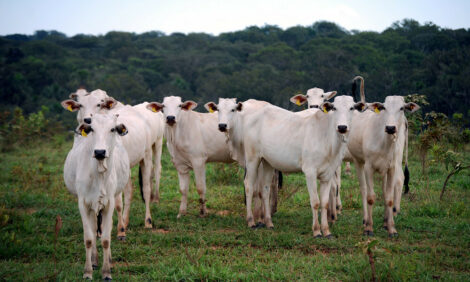



Broadening Marketing Opportunities
ETHIOPIA - As agricultural leaders across the globe look for ways to increase investments in agriculture to boost world food production, experts in African livestock farming are meeting in Addis Ababa this week to highlight the central role animal husbandry plays in helping African achieve food security.The livestock specialists will focus their deliberations on ways to get commercialized farm production, access to markets, innovations, gender issues and pro-poor policies right for Africa’s millions of small-scale livestock farmers and herders.
The importance of livestock today
Livestock production today employs more than 1.3 billion people globally. Most African small-scale farmers practice mixed farming systems that combine both crop farming and livestock keeping. Globally, these mixed systems produce the majority of the world’s food staples, including 89 per cent of maize, 91 per cent of the rice, and nearly three-quarters of the milk and 68 per cent of the beef consumed.
More than 70 per cent of Africa’s rural poor are livestock farmers. Each farm animal raised is a rare source of high-quality food, particularly of dietary protein, minerals, vitamins and micronutrients, for these households. Pastoralists, who rely on herding their animal stock to survive in the continent’s dry and otherwise marginalized environments, also make up a significant number of Africa’s population.
The importance of smart livestock investments
"There is a growing recognition by governments and donors that expanding investment in the agricultural sector is a cornerstone for alleviating poverty and building assets in Africa and other developing regions," said Carlos Seré, director general of the International Livestock Research Institute (ILRI).
"Public-sector investments bring with them a wealth of innovative business opportunities for small and large companies," Mr Seré said, "which then have the right incentives to invest in livestock-related enterprises. Private-sector provision of such essentials as infrastructure, credit, feeds, vaccines and milk cooling systems is a boon to the continent’s small-scale livestock producers."
"Smart investments targeting the developing world's growing numbers of livestock keepers (who make up about 1 billion people today) is a win-win-win," said Mr Seré. "Such investments promise not only to greatly increase global food security but also to generate profits for both poor livestock producers and agribusinesses."
Livestock-based enterprises are pathways out of poverty for many people in Africa, for whom animals are a source of nourishing foods and regular incomes. With demand for milk, meat and eggs rising fast in many developing countries, the raising and marketing of animals and animal products also allows many people to take advantage of the new growth opportunities in this sector.
Despite the vibrancy of the livestock sector here, much investment in African agriculture for food security has to date focused almost exclusively on crop farming. That is a mistake, says Mr Seré, as are many investments made to boost crop and livestock production systems independently, he says.
Livestock conference to address main constraints to livestock production in Africa
It is against this background that leading scientists in African agriculture are gathering 25–28 October 2010 at the United Nation Conference Centre in Addis Ababa, Ethiopia, to discuss the challenges and opportunities of commercializing livestock agriculture in Africa at the Fifth All African Society of Animal Production.
Among specific areas to be addressed are livestock trade and markets, pastoralism and natural resource management, animal genetics and commercialization, climate change and its effects on livestock systems, livestock feeds, and the delivery of livestock services to smallholders and herders.
Despite its wealth of livestock resources, Africa produces livestock at relatively low levels due to a range of technical, socioeconomic and biological challenges faced by smallholders and herders on the continent. These include weak policies and veterinary and other institutions; widespread parasitic, tropical and other livestock and zoonotic diseases; poor-quality feeds; inadequate inputs for livestock production; insufficient access to livestock markets and market information; and low market prices.
"This conference will address policy and strategy gaps that have prevented African livestock producers from making the most of their livestock resources," said Tadelle Dessie, a scientist with ILRI. "Addressing these gaps should help raise the level of investment in livestock production and improve market access for small-scale livestock producers."
Fix gender-based problems in livestock livelihoods
One potent way to enable Africa’s farmers and herders to benefit more from livestock production, say many who have researched the topic, is to redress gender imbalances in access to resources for livestock production.
"Institutional, social and economic gender-based constraints inhibit women’s full participation in livestock markets and marketing," says Jemimah Njuki, a scientist with ILRI.
Research shows that many African women already have access to very local markets and that they already participate in different stages of livestock value chains. "Helping women access market-related information will help them help raise the continent’s livestock production levels," Mr Njuki said, adding, "and should allow them to benefit more from their livestock enterprises."
TheCattleSite News Desk


